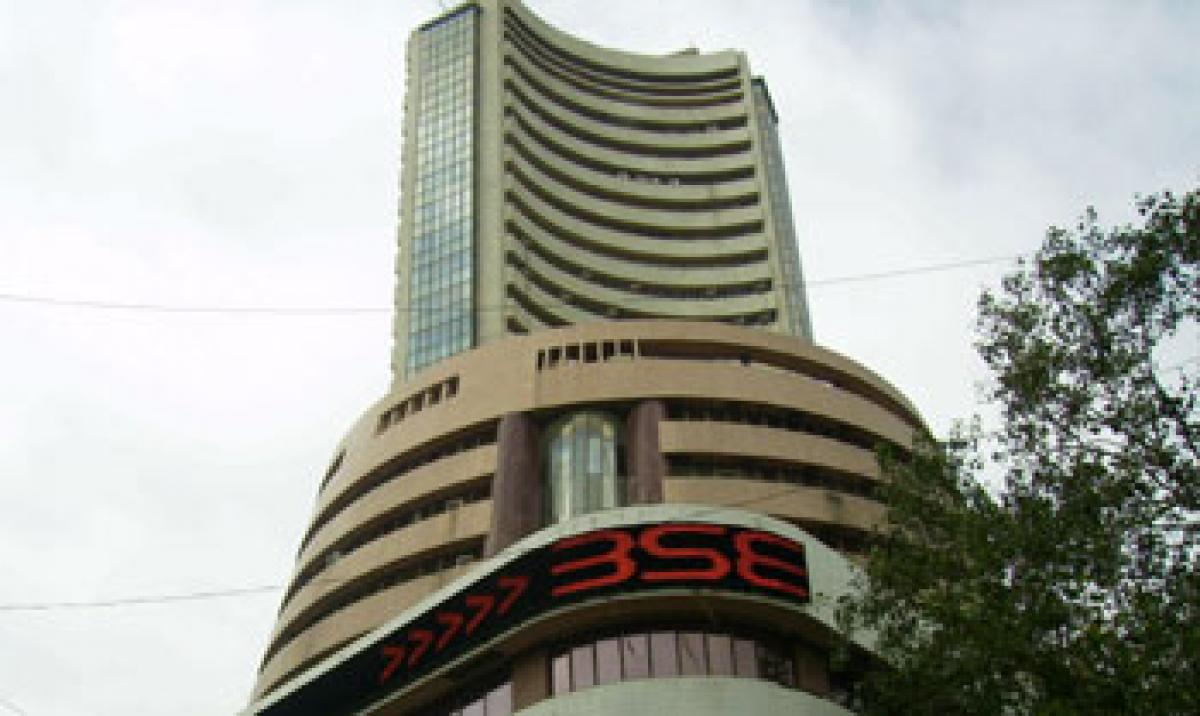Live
- AAP govt settling Rohingyas in Delhi, giving voter cards: BJP
- CashKaro Founder Couple Swati & Rohan Bhargava Launch ‘BAD’ Podcast to Inspire India’s Next Generation of Dreamers
- Border-Gavaskar Trophy 2024-25: Australia’s assistant coach Daniel Vettori to miss first Test for IPL mega auction
- Maha polls: BJP’s ‘chota popat’ jibe in response to Congress ‘safe’ attack
- AM Green Kakinada Cluster Joins the World Economic Forum.
- 3 elephants electrocuted in Sambalpur
- Elevate Your Style: Handpicked Luxury Fashion & Accessories
- Ola Electric users continue to cry amid poor service, software glitches nationwide
- Panchayat Raj AE Panduranga Rao caught by ACB while taking a bribe of Rs 50,000.
- Leveraging Data and Analytics for Product Management Excellence: Mahesh Deshpande’s Approach
Just In

On Thursday, the FIIs bought shares worth Rs 4,056 crore as per the provisional numbers released by the bourses. With this, the FIIs have estimated to have pumped in a total Rs 24,109 crore into the Indian stock markets in 20 trading sessions in March - the highest amount in last 37 months after February, 2012.
The BSE Sensex fluctuated both ways to have closed 68 points lower last week, the first fall in five weeks. The benchmark BSE Sensex slipped below the previous week's closing mainly on global cues and lack of fresh buying support in view of expiry of March series of derivative contracts, besides sustained off-loading by domestic institutional investors. A fresh fear of the US banking regulator, Federal Reserve, hiking interest rates in mid-April also affected the market sentiments. However, the damage suffered by the markets was insignificant at 68 points on the BSE Sensex as foreign institutional investors (FIIs) continued to extend their buying support and mop up Indian stocks on an increasing scale.
On Thursday, the FIIs bought shares worth Rs 4,056 crore as per the provisional numbers released by the bourses. With this, the FIIs have estimated to have pumped in a total Rs 24,109 crore into the Indian stock markets in 20 trading sessions in March - the highest amount in last 37 months after February, 2012.
The huge buying support extended by the FIIs could not save the markets from closing in the red as for one thing, it was the week of expiry of derivative trades in the form of F&O and for the second, global cues turned out to be negative.
The markets also feared that despite a dovish stance as expressed by its chairperson Janet Yellen, a second interest rate hike in mid-April would certainly be announced by Federal Reserve as the other regional governors of the US banking regulator did not support her view. The data released pertaining to the US's jobless claims and others, also pointed that the US economy was improving and therefore no need to continue with cheap money policy rates any more.
The Reserve Bank of India is scheduled to review monetary policy on Tuesday this week and an interest rate cut of 25 basis points is widely expected. But according to most of the market analysts, this likely cut of 25 basis points is already factored in and therefore, would not create any positive impact on the markets.
The markets expect the banking regulator to cut the rates by 50 basis points and in that case only the markets could rise further from present level but those who are familiar with the strict attitude of the RBI Governor Raghuram Rajan don't expect a rate cut of even 25 basis points. This was also a factor that contributed in creating dullness in the markets. With the fiscal year already over in March, speculations pertaining to the yearly corporate numbers will make even the bull operators wary of taking higher risks.
Besides, ensuing state assembly elections in four to five states starting from April 5 also turned out a dampener on the markets as, though the chief ruling party, the BJP, is nowhere in power in those states, it needs to earn a bigger space there if it has to reign the nation more steadily. The postponed Parliament sessions is scheduled to resume from April 23 and the government is still unsure of getting a few crucial bills including GST, getting cleared. This uncertainty will remain a hurdle against the markets staging a fresh and major run up.
In view of multiple uncertainties and risks, the markets are unlikely to stage a fresh and March-like run up in April. The prospective buyers are, therefore, suggested to tread highly cautiously while making buying decisions.
After all, the market movements are most likely to remain news-based for a few weeks from now and therefore, the investors will have to learn as to how to convert the news into money making opportunities. For example, the government last week reduced gas prices by nearly 20 per cent. This is likely to benefit the gas distributing companies. Investors should, therefore, keep an eye on gas distribution companies and pick those up when their prices decline.
Also, the Met department has predicted the summer this time is most going to be extremely hot. This could help companies that are in the business like air-conditioners & coolers, ice creams, refrigerators and also power generating companies. For other investors, buy on dips is the policy to be adopted in the next few weeks when corporate numbers and other news will start pouring in.

© 2024 Hyderabad Media House Limited/The Hans India. All rights reserved. Powered by hocalwire.com







